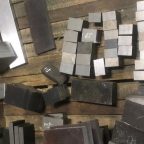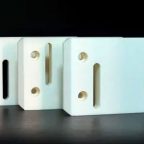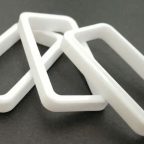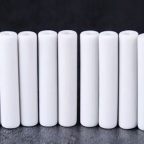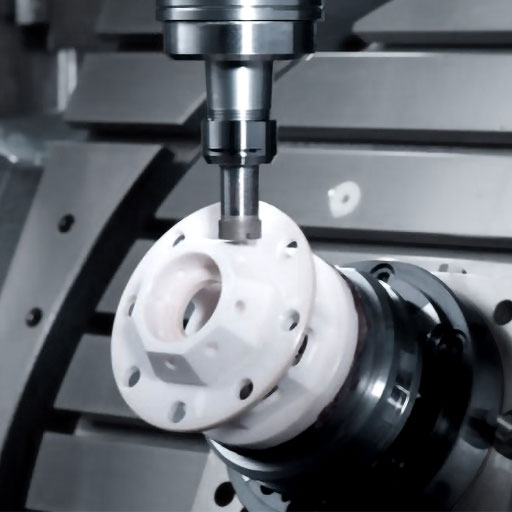We all know that the zirconia ceramics we are familiar with have the advantages of high temperature resistance, corrosion resistance, wear resistance and thermal shock resistance. In recent years, with the advancement of ceramic toughening and strengthening technology and the development of mechanical machining methods, the application range of zirconia ceramics has expanded rapidly. So do you know what major problems will be encountered in the machining of zirconia ceramics? The following is a brief introduction to the main problems encountered in the machining of zirconia ceramics by Pintejin Ceramics, a manufacturer specializing in the production of zirconia ceramics.
Zirconia ceramic cutter 1. Processing methods of zirconia ceramics Processing methods of zirconia ceramics are commonly divided into two categories: mechanical machining, mold injection machining, etc. Among them, the mechanical machining method is highly efficient, so it is widely used in industry, especially It is the diamond wheel that is more common for grinding, lapping and polishing. Second, the main problems of zirconia ceramic machining Although there are many methods of zirconia ceramic machining, but the machining cost is high, the machining efficiency is low, and the machining accuracy is poor. One of the main reasons for this is the very high hardness of ceramics. For the unsintered or sintered zirconia ceramics, rough machining is mainly performed by cutting, and after sintering (the process of converting powdery materials into dense bodies), grinding is used for finishing.
Zirconia ceramic screw Depending on the situation of zirconia ceramics, the sintered body can also be directly ground and processed to achieve the design accuracy (precision) without machining. As far as the machining process is concerned: zirconia ceramics are almost similar to metal parts, but the machining allowance of zirconia ceramics is much larger. During rough machining of unsintered or sintered ceramics: the problem of insufficient strength or surface machining defects is prone to occur, or the required final machining shape cannot be obtained due to insufficient clamping and other reasons. Since the shrinkage cannot be kept uniform during sintering, it is necessary to make the size not too close to the final size during rough machining, so there is a large allowance for finishing. For metal machining, the finishing allowance should be a few percent of millimeters as far as possible, considering the black skin caused by thermal deformation and heat treatment. For ceramic machining, the finishing allowance needs to be a few millimeters or even a dozen millimeters.
The machining allowance is large, the productivity is reduced, and the production cost is increased. Another problem of zirconia ceramic machining is that the machining tool cost is high, cutting requires the use of high-priced sintering (the process of converting powder materials into dense bodies) diamond and CBN tools, and diamond grinding wheels are also used for finishing, so the tool cost It is dozens to hundreds of times higher than the tools used in metal cutting. The strength of zirconia ceramics is sensitive to machining conditions (sensitive), and it is difficult to achieve high-efficiency machining, so the machining cost of zirconia ceramics is much higher than that of ordinary materials. Pintejin Ceramics is a professional manufacturer of industrial ceramics, mainly engaged in the research and development and production of zirconia ceramics and alumina ceramics. We can process ceramic products according to your drawings, specializing in the production of high-precision ceramic rods, ceramic tubes, ceramic rings, ceramic plates, ceramic flanges, ceramic nozzles, and customized precision ceramic parts, etc.
Pintejin machining ceramic service include : Alumina Ceramic Parts, Zirconia Ceramic, Silicon Carbide Ceramic, CNC Machined Aluminum Nitride Ceramic, Machinable Ceramic Parts, Glass Ceramic,Macor Ceramic,Powder Metallurgy Dies,Ceramic Injection Molding,Ceramic Dry Pressing,Ceramic Extrusion Dies
